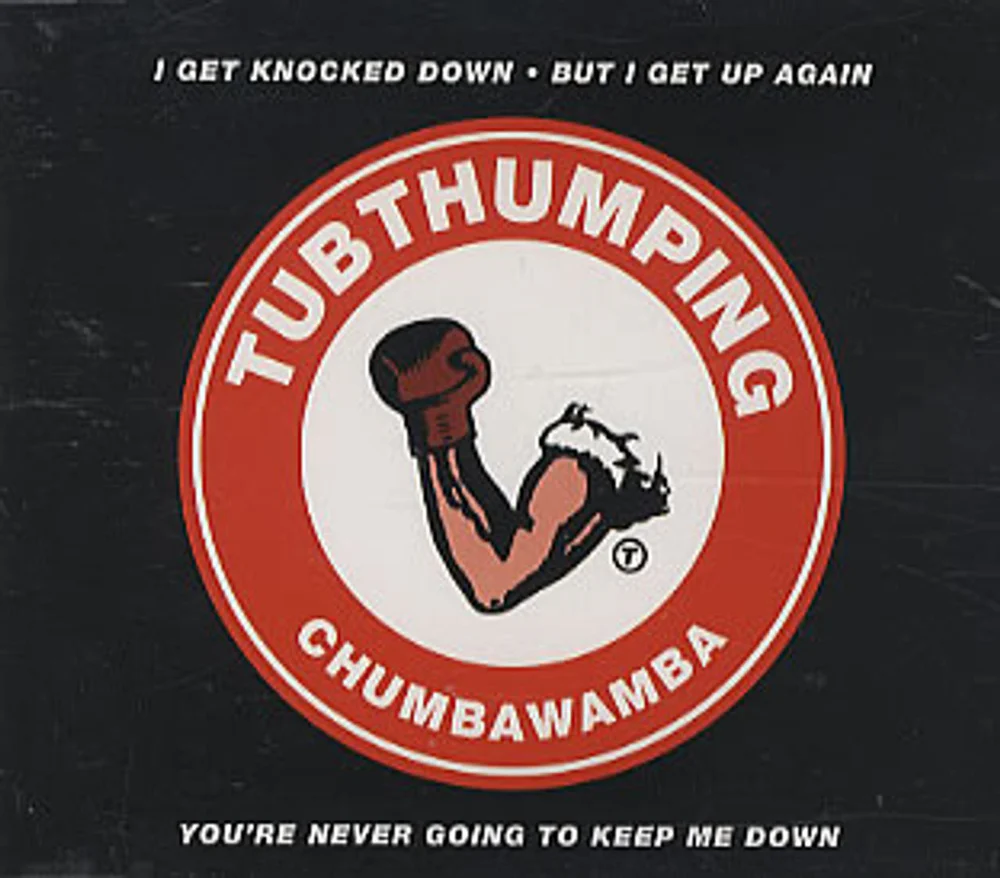Song Stories: Chumbawamba: Tubthumping
This song became an almost instant hit for Chumbawamba. However, its story is more complex than simply becoming a British anthem.
An undeniable earworm, it soared to Number Two on the UK Singles Chart. At the time, the band was perceived as a new act and a one-hit wonder. In reality, this song was the lead single from their eighth studio album, 'Tubthumper', their first release on a major label, EMI.
Vocalist Dunstan Bruce later reflected that, before writing it, the band "were in a mess: we had become directionless and disparate." He credited Tubthumping with turning things around, telling The Guardian, "It's not our most political or best song, but it brought us back together. The song is about us, as a class and as a band. The beauty of it was we had no idea how big it would be."
Formed in the early 1980s, Chumbawamba was an overtly political band with strong left-wing views. Their early work tackled issues like class struggle, anti-fascism, and corporate greed, often through unconventional sounds and DIY ethics. For example, their 1986 debut album, Pictures of Starving Children Sell Records, was a response to the “spectacle” of 1985’s Live Aid fundraiser. The band also played benefit shows at UK miners’ strikes, picket lines, and anti-war events.
By all accounts, they were one of the most unlikely pop stars Britain has ever produced. Yet Tubthumping was a brilliant pop song that stayed truer to the band’s roots than it seemed at first glance. Its title comes from British slang for aggressive political protesting, while its anthemic chorus captured the resilience of the working class:
"I get knocked down, but I get up again
You’re never gonna keep me down!"

The song’s inspiration is said to have come from a night when guitarist Boff Whalley and his wife watched their drunken next-door neighbor struggling to open his front door while singing Danny Boy. Eventually, he made it inside. From that moment, the song evolved into an anthem of perseverance, a rallying cry for the underdog.
The band carried Tubthumping’s rebellious spirit to the 1998 BRIT Awards, where drummer Danbert Nobacon infamously poured a bucket of water over UK Deputy Prime Minister John Prescott’s head in solidarity with the Liverpool Dockworkers’ Strike. Despite achieving one of the biggest hits of the year, they remained true to their punk ethos.
The song was rightfully praised by fans and critics and became a staple on radio. Though politically tinged, it had the simplicity of a football terrace chant. Ian Hyland of The Sunday Mirror put it best:
"Sing a terrace chant, mention lager, and the rugby boys will be making boozed-up human pyramids on the dance floor in seconds. And you'll have a monster hit – good work, chum."
He’s right. It’s nearly impossible not to sing along when the chorus kicks in. Though Chumbawamba never replicated the massive success of 'Tubthumping', the song remains an enduring cultural touchstone. Featured in countless movies, TV shows, and sports events, it continues to serve as a universal anthem of resilience and working-class pride.
For a brief moment, the world was watching. And perhaps, for the last time in British chart history, a band of outsiders, misfits, and punks. Who believed their music could change the world, had their moment. Not since the Sex Pistols twenty years earlier had a band like this stormed the charts.
It remains one of the most unique and unconventional hits in UK history—and that only makes it more brilliant.
Thank you for reading.
Jack x